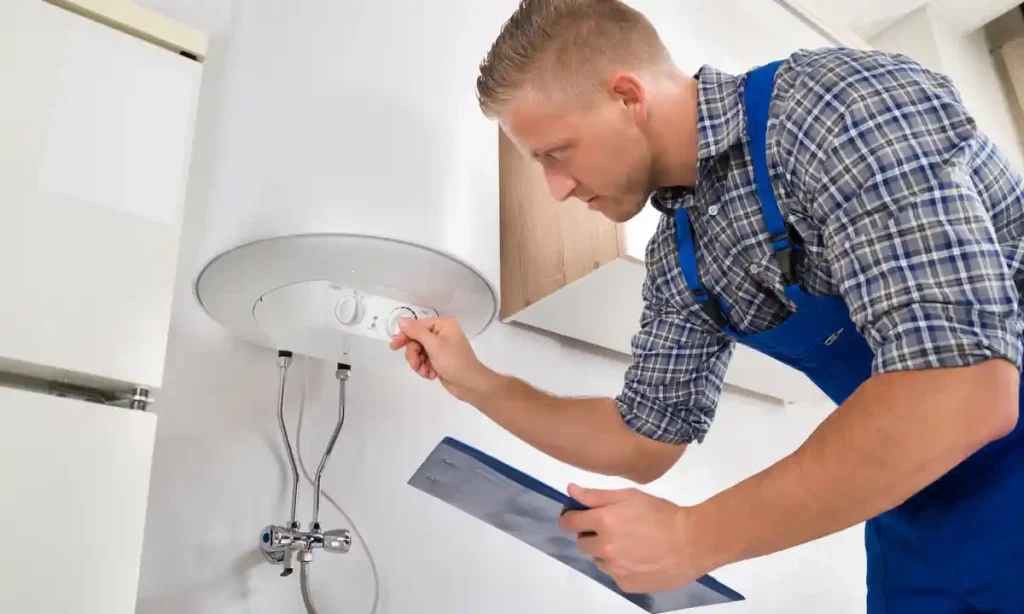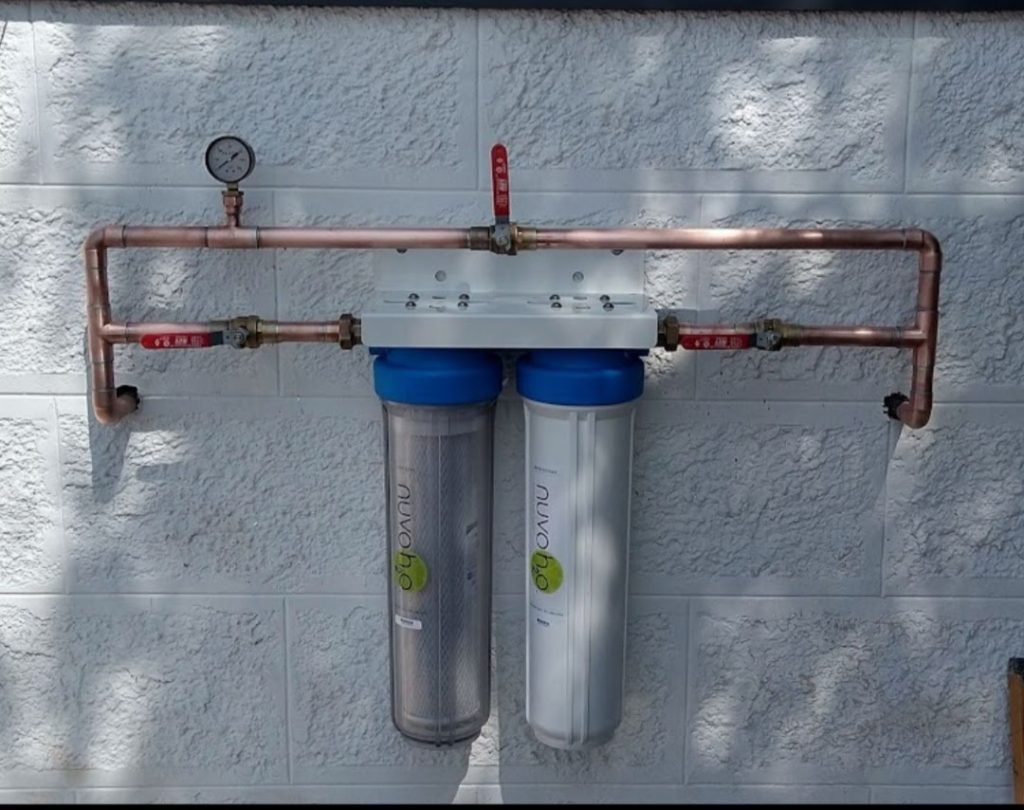Water heater plays a vital role in providing hot water for various activities in your home, from taking showers to washing dishes. However, like any other appliance, water heaters can experience issues over time. Recognizing the signs that your water heater needs repair is crucial to avoid inconvenience and potential damage to your home.
In this blog post, The Pro Plumbing will discuss the top five signs that indicate your water heater may require professional attention. By being aware of these signs, you can address problems promptly and ensure that your water heater continues to function optimally, providing you with reliable hot water whenever you need it. So, let’s delve into the signs that your water heater may be in need of repair and explore the possible solutions to get your hot water flowing smoothly once again.
With their expertise and commitment to customer satisfaction, they have established themselves as a trusted provider in the industry. By addressing your water heater issues promptly and effectively and ensures that your hot water needs are met efficiently, restoring comfort to your daily routines.

Factor that Represent Water Heater Need Repair
Insufficient Hot Water Supply
One of the most obvious signs that your water heater is in need of repair is a lack of hot water or a significant decrease in the amount of hot water available. If you find yourself constantly running out of hot water or if the water is not getting as hot as it used to, it’s a clear indication that something is amiss with your water heater. Here are a few possible reasons for the insufficient hot water supply:
- Sediment buildup: Over time, sediment can accumulate at the bottom of your water heater tank. This sediment can insulate the heating element, making it less efficient at heating the water. As a result, you may experience reduced hot water output. Flushing the tank to remove the sediment buildup can help restore the hot water supply.
- Heating element issues: Electric water heaters have heating elements that heat the water. If one or both of the heating elements are faulty or burned out, it can result in inadequate hot water production. A professional plumber in California, can inspect and replace the faulty heating elements to restore proper functioning.
- Thermostat problems: The thermostat controls the temperature of the water in your heater. If the thermostat is malfunctioning, it may not signal the heating elements to heat the water to the desired temperature. This can lead to lukewarm or cold water instead of hot water. Repairing or replacing the thermostat can resolve this issue.
- Tank size and capacity: If you have recently experienced a sudden increase in demand for hot water, such as accommodating more people in your household or adding new appliances, your current water heater may not have sufficient capacity to meet the increased hot water needs. Upgrading to a larger tank or considering a tankless water heater may be necessary in such cases.
Strange Noises or Rumbling Sounds
If you notice unusual noises coming from your water heater, such as rumbling, popping, or banging sounds, it could be a sign that your water heater needs repair. Here are some possible causes of these strange noises:
- Sediment buildup: Sediment can accumulate at the bottom of your water heater tank over time. When the heating element heats the water, the sediment can harden and create a barrier between the heating element and the water. As a result, the water trapped beneath the sediment can boil and produce popping or rumbling sounds. Flushing the tank to remove the sediment can help alleviate the noise and improve the performance of your water heater.
- Overheating: If the temperature of the water in your water heater exceeds the recommended level, it can lead to overheating. This can cause the water to boil and create rumbling or banging sounds. Overheating can occur due to a faulty thermostat or a malfunctioning temperature and pressure relief valve. It’s essential to have a professional plumber to inspect your water heater and address any temperature regulation issues.
- Scale buildup: In areas with hard water, mineral deposits can accumulate on the heating elements or other internal components of the water heater. This scale buildup can cause the heating elements to work inefficiently and produce strange noises as they heat up. Regular maintenance and descaling can help prevent this issue.
- Expansion and contraction: As the water heats up and expands inside the water heater tank, it can lead to the tank’s components expanding and contracting. This expansion and contraction process can result in cracking or shifting of the sediment or other internal elements, causing noises. If you notice these sounds, it’s crucial to have a professional assess the condition of your water heater to determine if any repairs are needed.
Discolored or Rusty Water
If you turn on the hot water tap and notice that the water coming out is discolored or rusty, it is a definite sign that your water heater needs repair. Here are some potential causes for this issue:
- Corroded anode rod: Water heaters typically have an anode rod that is designed to attract corrosive elements in the water, preventing them from attacking the tank itself. Over time, the anode rod can become corroded and ineffective. As a result, rust particles can mix with the hot water, giving it a brownish or rusty appearance. Replacing the anode rod can often solve this problem.
- Sediment buildup: Sediment buildup not only affects the efficiency of your water heater but can also contribute to discolored water. The sediment can contain rust and other particles that can mix with the hot water and result in discoloration. Flushing the tank to remove the sediment can help eliminate this issue and improve the water quality.
- Internal tank corrosion: If your water heater is old or has been neglected, internal corrosion may have occurred within the tank. This corrosion can cause the tank to rust from the inside, leading to discolored water. Unfortunately, if the tank is severely corroded, repair options may be limited, and a replacement may be necessary.
- Pipe corrosion: The presence of rust in your water could be due to corroded pipes rather than the water heater itself. Corroded pipes can release rust particles that mix with the water, resulting in discolored hot water. A professional plumber can inspect the pipes and determine if they are the source of the issue.
If you notice discolored or rusty water coming from your hot water taps, it is crucial to have your water heater inspected by a professional. We have experienced technicians who can assess the situation, identify the cause of the discoloration, and recommend the appropriate repair or replacement solution.
Leaks or Water Pooling Around the Water Heater
One of the most obvious signs that your water heater needs repair is the presence of leaks or water pooling around the unit. If you notice water accumulation or dampness around your water heater, it’s crucial to take immediate action. Here are some possible causes of leaks or water pooling:
- Loose or damaged fittings: Over time, the fittings and connections in your water heater can become loose or damaged, resulting in water leakage. This can occur at the inlet and outlet connections, the pressure relief valve, or the temperature and pressure relief (T&P) valve. Tightening or replacing these fittings can often resolve the issue.
- Corroded or faulty tank: Corrosion can weaken the tank over time, leading to cracks or holes that allow water to leak out. If the tank itself is leaking, it is often an indication that the water heater needs to be replaced, as repairing a severely corroded tank is typically not feasible. A professional inspection can help determine the extent of the damage and recommend the appropriate course of action.
- Excessive pressure: If the pressure inside the water heater exceeds safe levels, it can cause leaks to develop. This can happen due to a malfunctioning pressure relief valve or a faulty expansion tank. A professional plumber can diagnose the cause of the high pressure and make the necessary repairs or replacements.
- Condensation: In some cases, the presence of water around the water heater may be due to condensation rather than an actual leak. Condensation can form on the exterior of the tank when there is a significant difference between the temperature of the water inside the tank and the surrounding environment. While condensation itself may not be a cause for concern, excessive condensation can indicate insulation or ventilation issues that should be addressed.
If you observe any leaks or water pooling around your water heater tank, it is essential to shut off the power supply and water source to the unit and contact a professional plumber immediately. They can assess the situation, identify the source of the leak, and provide the necessary repairs or replacement.
Increased Energy Bills
If you’ve noticed a sudden spike in your energy bills without any significant changes in your usage patterns, it could be a sign that you need water heater repair. Here are some possible reasons for the increased energy consumption:
- Sediment buildup: When sediment accumulates at the bottom of your water heater tank, it acts as an insulating barrier. This insulation reduces the efficiency of the heating element, causing it to consume more energy to heat the water. Flushing the tank to remove the sediment can help restore the efficiency of your water heater and lower energy consumption.
- Malfunctioning thermostat: A faulty thermostat can lead to temperature inconsistencies and cause your water heater to work harder to maintain the desired temperature. As a result, the heating element may run more frequently, consuming more energy than necessary. Repairing or replacing the thermostat can help resolve this issue and improve energy efficiency.
- Aging or inefficient water heater: As water heaters age, their efficiency tends to decline. Older units may not be as energy-efficient as newer models, resulting in increased energy consumption. If your water heater is nearing the end of its lifespan, it may be more cost-effective to replace it with a newer, energy-efficient model.
- Inadequate insulation: Insufficient insulation around your water heater can cause heat loss, forcing the unit to work harder to maintain the desired water temperature. Adding insulation to the water heater and the hot water pipes can help reduce heat loss and improve energy efficiency.
If you’re concerned about increased energy bills, it’s advisable to consult a professional plumber to assess your water heater. They can identify any underlying issues contributing to the higher energy consumption and recommend the appropriate repairs or replacements.

Conclusion
In conclusion, being aware of the top 5 signs that your water heater needs repair is crucial for maintaining the functionality, efficiency, and safety of your home’s hot water supply. If you notice any of these signs, it’s essential to act promptly and seek the expertise of a professional plumber.
By choosing the best plumbing company in Alhambra, CA ; you can trust that their experienced technicians will accurately diagnose the issues with your water heater and provide efficient and reliable repair services. With their knowledge and expertise, they can address problems such as insufficient hot water supply, strange noises or rumbling sounds, discolored or rusty water, leaks or water pooling, and increased energy bills.
We understands the importance of a properly functioning water heater and the impact it has on your daily life. With their commitment to customer satisfaction, they strive to deliver exceptional service, transparent pricing, and timely repairs. Whether it’s repairing faulty components, flushing out sediment buildup, replacing anode rods, or upgrading to a more energy-efficient model, that has the expertise to meet your water heater repair needs.

